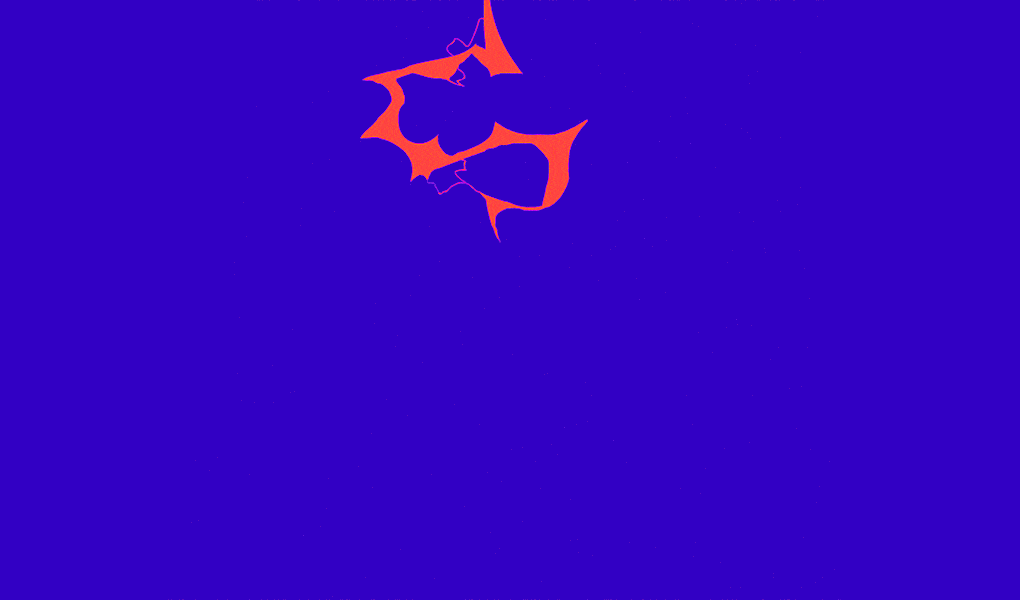/// 好 老 师 ,在 东 华 ///
在初中英语中,主要有三大从句,即:
宾语从句、定语从句、状语从句(包括时间、条件、结果、目的、原因、让步、地点、方式等)。
宾语从句
一、定义
在句子www.58yuanyou.com中起宾语作用的从句叫做宾语从句。
如:She knew that the teacher had seen the film.
她知道这位老师看过这部电影。
(“that the teacher had seen the film”做 knew 的宾语,同时又是由连接词 that 引导的从句,所以它叫做宾语从句。)
二. 宾语从句的分类
(1)动词宾语从句:顾名思义,它是位于动词后面的宾语从句。
例如:He asked whose handwriting was the best in our class.他问我们班上谁的书法最好。
(2)介词宾语从句:顾名思义,它是位于介词后面的宾语从句。
例如:I agree with what you said just now.我同意你刚才说的话。
(3)形容词宾语从句:顾名思义,它是位于形容词后面的宾语从句。
例如:I am afraid that I will be late. 恐怕我要迟到了。
三. 引导名词性从句的连接词
(1)that:没有含义,在宾语从句中不做成分
(2)whether/if:表示是否,在宾语从句中不做成分。
I don't know if /whether he still lives here after so many years. 我不知道这么多年后,他是否还住在这里。
(3)连接代词:what, which, who, whom, whose(在宾语从句中做主、宾、表和定语)
连接副词:where, when, how, why(在宾语从句中做状语)
The small children don't know what is in their stockings.(what 在宾语从句中做主语)
这些小孩子不知道什么在他们的长筒袜里。
Could you tell me why you were late for the meeting this morning?(why 在宾语从句中做原因状语)
你能告诉我为什么你今天早上开会迟到吗?
四. 在做宾语从句的题目时应注意两点
(1)时态
①当主句是现在时态时,宾语从句可以根据需要使用任何时态。
I don't know when he will come back.我不知道他将何时回来。
He tells me that his sister came back yesterday.他告诉我他姐姐昨天回来了。
②当主句是过去时态时,宾语从句必须是一种过去的时态。
She asked me if I knew whose pen it was.她问我是否知道这是谁的钢笔。
He said that he could finish his work before supper.他说他会在晚饭前完成工作。
③当表示客观事实或普遍真理的句子做宾语从句时,任何时候都用一般现在时。
The teacher said that the earth goes round the sun.老师说过地球绕着太阳转。
(2)语序
任何从句都使用陈述句语序,宾语从句当然也不例外。
定语从句
一、定义
在复合句中,修饰某一名词或代词的从句叫定语从句。被修饰的名词或代词叫先行词,引导定语从句的词叫关系词,定语从句一般放在先行词的后面。
二、先行词
| 先行词指人 | who /that |
| 先行词指物 | which/ that |
定语从句一般紧跟被修饰的名词或代词(即先行词)后
三、关系代词
关系代词代替 先行词在句子中担当成分,所以从句中不可再出现其他代替先行词的代词。
关系代词的用法:
(1)that 既可以用于指人,也可以用于指物。在从句中作主语、宾语或表语。作主语时不可省略,作宾语可省略。例如:
Mary likes music that is quiet and gentle.
玛丽喜欢轻柔的音乐。(that作主语)
The coat (that) I put on the desk is blue.
我放在桌子上的那件外套是蓝色的。(that作宾语)
(2)which用于指物,在句中作主语、宾语或表语。作主语不可省略,作宾语可省略。例如:
The building which stands near the train station is a supermarket.
位于火车站附近的那座大楼是一家超市。(作主语)
The film (which) we saw last night was wonderful.
我们昨天晚上看的那部电影很好看。(作宾语)
(3)who, whom用于指人,who 用作主语,whom用作宾语。在口语中,有时可用who代替whom。who和whom作宾语时也可省略。例如:
The girl who often helps me with my English is from England.
经常在英语方面帮助我的那个女孩是英国人。(作主语)
Who is the teacher (whom) Li Ming is talking to?
正在与李明谈话的老师是谁?(作宾语)
关系代词只能 that 的特殊情况:
| 1.先行词前有序数词修饰时: | This is the first gift that my parents bought me. |
| 2.先行词前有形容词最高级修饰时: | This is the most exciting film that I have ever seen. |
| 3. 先行词是不定代词something, anything等时. | Is there anything that you want in this shop. |
| 4. 先行词是人和物时, 用that. | He talked about some writers and books that were unknown to us all. |
| 5、先行词被all , little , the only , the very(就是,正是), the last 等词修饰时,只能用that | This is the last place that I want to visit. |
| 6. 特殊疑问句以who 或which 开头,只能用that引导. | Who is the girl that is making a speech on the platform? |
当关系代词前使用介词时:
| 物+介词+which | 1. This is the train by which we went to Beijing. |
| 人+ 介词 + whom | 2. This is the teacher to whom my mother is talking. |
关系副词的用法:
(1)when指时间,其先行词表示时间,when在定语从句中作时间状语。例如:
This was the time when he arrived.
这是他到达的时间。
(2)where指地点,其先行词表示地点,where在定语从句中作地点状语。例如:
This is the place.
这是他工作的地点。
(3)why 指原因,其先行词是原因,why在定语从句中做原因状语。例如:
Nobody knows the reason why he is often late for school.
没人知道他为什么上学总迟到。
状语从句
一、定义
在复合句 中由从句表示的状语称作状语从句,它可以用来修饰 谓语(包括非谓语动词)、定语或状语,或是整个句子。
二、状语从句一般分为八大类
| 时间状语从句 | 地点状语从句 | 原因状语从句 | 目的状语从句 |
| 结果状语从句 | 条件状语从句 | 方式状语从句 | 让步状语从句 |
1. 时间状语从句
Someone knocked at the door when I was having breakfast.
| When ---当……时候,通常指某一特定的时间点,主句与从句的动作同时发生。 | When I opened the window, I saw him come up. |
| When --- 正在……的时候,突然…。通常主句是进行时或 be about to 时,在翻译的时候,when 可以译成没想到或突然。 | I was walking along the street , when I met him. |
| When 当从句是进行时,主句是一般时,往往表示不满。 | Someone knocked at the door when I was having breakfast. |
When=after
When the children had gone to bed, she began to prepare her lessons.
| While ---在……期间,往往指一段时间。 | While we were inAmerica, we saw him twice. |
| While ---表示一种不满情绪,意思是这边在干某种重要的事,而另一边在享受等。 | We are cleaning the classroom while they are playing the football. |
| As --- 一边……一边, 随着 | She was doing her homework as she was listening to the music. |
| As --- 当……时,指一个动作紧接着一个动作发生,从句通常用进行时。 | As I was going out, it began to rain. |
The moment --- 一……就…… =as soon as , immediately,
---Did you remember to give Mary the money you owed her?
---Yes, I gave her the moment I saw her.
Not… until --- 直到……才
He didn’t leave the office until he finished the work.
Before ---在……之前
The passengers should arrive at the airport an hour before the flight departs.
After ---在…… 之后
The customer left the ticket counter after he had a quarrel with the ticket agent.
Since ---自从……, 通常主句用现在完成时
I have never been there again since I graduated from the university.
It is just a week since we arrived here.
As soon as --- 一……就……
Jack went to school as soon as he got well.
No sooner than ---一……就……
no sooner… than… 用于句首要求倒装
Hardly …when…
Scarcely …when…
No sooner had he arrived than he went away again.
Once --- 一但……就……
Once you see him, you will never forget him.
Every time, each time 每次whenever 每当
Each time he came to town, he would visit our school.
2. 条件状语从句
引导状语从句的连接词有:
If如果, unless除非, as long as只要, As (so) far as --- 据……所知,in case万一, provided that假如, on condition that若是,以…为条件
If ---如果
If you don’t hurry up, you will miss the plane.
Unless --- 如果不, 除非=if not
We can’t get there on time unless we book the earliest flight
As long as --- 只要
We will succeed as long as we keep on trying.
As (so) far as --- 据……所知
As far as I know, he speaks English very well.
In case --- 假使, 如果
The plane cannot take off in case it rains.
Provided that 如果,有时省略 that
The plane will be in good condition provided that it is taken care of carefully.
On condition that --- 条件是…
He said that he would come to the meeting on condition that no one asked him to speak.
注:主从句的动作发生在将来时,则主句用将来时, 从句用一般现在时。
If he arrives tomorrow, I will be waiting for him at the airport.
3. 地点状语从句
地点状语从句只有两个连词: Where, wherever
Where --- 在……地方
Where there is a will, there is a way.
Wherever --- 无论哪里
Wherever you are, I will be right there waiting for you.
4. 原因状语从句
because, as, since, now that, 和considering that, seeing that 这六个连词都用于表示表示原因, 但在语气上一个比一个弱.
Because --- 因为,通常从句放在主句后.
Mr Smith was very upset because he couldn’t find his luggage.
As --- 因为, 通常放在句首
As he is honest and modest, all his friends like him.
Si原由网nce ---既然 因语气较弱, 常译为既然(众所周知的原因)
Since everybody has comewww.58yuanyou.com, we can set off.
Now that --- 既然
Now that you are here, you can join us.
considering that --- 顾及到
Considering that they are just beginners, they are doing quite a good job.
seeing that --- 由于
Seeing (that) quite a few people were absent, we decided to put the meeting off.
5. 结果状语从句
引导结果状语从句的连词有:that, so that, so…that…
such…that So… that --- 太……以至于so 后面应用形容词或副词, 有时省略so只用that
Boeing 747 is so large that people like to call it jet bomb喷气炸弹.
So that --- 因而,以便,为了 有时so 可以省去
Speak louder please so that the people at the back can hear you.
Such …that… ---太……以至于用法与so…that相同,但such 后面应用名词。
The foreign visitor was such a fast speaker that nobody could understand him.
6. 目的状语从句
引导目的状语从句的主要连词有: that, so that, in order that, for fear that, lest
(So) that --- 以便,从句中常常使用一些情态动词,如:can, could, may, might, should等
Let’s take the front seats (so) that we may see more clearly.
in order that --- 为了, 与so that 相同从句中常常使用一些情态动词,如:can, could, may, might, should等
School was closed early in order that the children might go home ahead of the storm.
for fear that --- 生怕; 为了防止(某事发生)
He took the name down for fear that he should forget it.
in case --- 万一
You should bring a dictionary in case you need it.
Lest --- 以防万一
The man decided to tell his boss the fact lest he would be angry with him.
7. 让步状语从句
引导让步状语从句的连词有:Although, though, as, even if, even though, no matter, however, whatever, while, whether.
Although, though ---虽然although 和though 可以互换,但although 常放在句首。Though可以用于倒装。
Although it was raining, the plane managed to take off.
Though he did his best, he didn’t succeed.
As --- 尽管as 引导让步状语从句时,句子通常倒装。可原由网与though 互换。
Busy as he is, he never misses a football match.
Even if /even though ---即使
Even if you don’t like your boss, you should do your work.
However --- 不论,however 引导让步状语从句时,句子通常倒装
He couldn’t get there on time however fast he drove.
No matter (what, when, where, how) ---无论(什么,何时,何地,怎样)
He wouldn’t forgive me no matter how hard I begged him.
Whatever --- 不管
Whatever other people may say, she won’t change her mind.
While ---尽管
While I have sympathy for you, I can’t help you.
Whether ---不管,常与or not 连用
Whether he is good or not, the company decided to send him abroad.
8. 方式状语从句
方式状语从句常由: as, as if, as though
as ---与…… 一样
Do in Rome as the Romans do.
as if, as though --- 仿佛, 由as if或 as though引导的从句中可用虚拟语气
She stood at the door as if (=as though) she were waiting for someone.
句型
1、as句型
(1) as引导方式状语从句句型:“按照……;正如……”
例:As(it is)in your country, we grow wheat in the north and rice in the south.
正如(像) 你们国家一样,我们北方种植小麦,南方种植水稻。
(2) as+形容词/副词原级+(a /an)+名词+as ;
否定式:not as/so --- as
例:He is as good a player as his sister.
他和他姐姐一样是位优秀的运动员。
(3) such + n. + as to do 如此……以致于……
例:She is such a fool as to believe what he said.
她是一个如此的一个笨蛋以致相信了他所说的话。
(4) so + adj./adv. + as to do sth 如此……以致于……
例:He was so strong as to carry the heavy box.
他是如此的强壮以致于能提起那重箱子。
(5) such...as... 象……之类的…… (接名词或定语从句)
例:He wished to be such a man as Lei Feng was.
他希望成为一个像雷锋这样的人。
(6) the same +名词+as 和……一样的…… (接名词或定语从句)
例:He is not the same man as he used to be.
他不是从前的那样子了。
(7) as 引导非限制性定语从句
例:As is known to us, knowledge is power.
众所周知,知识就是力量。
(8)引导时间状语从句,与while意义相近
例:We get wiser as we get older.
随着我们长大,我们也变得越来越聪明。
(9) 引导原因状语从句,与 because的用法相近
例:As it was getting very late, we soon turned back.
因为越来越迟了,所以我们不久就回来了。
(10) 引导让步状语从句
例:Child as he is, he knows much about science.
尽管他是一个小孩,但他对科学了解得很多。
2、prefer句型
| prefer to do sth | I prefer to stay at home.我宁愿呆在家里。 |
| prefer doing sth | I prefer playing in defence.我喜欢打防守。 |
| prefer sb to do sth | Would you prefer me to stay?你愿意我留下来吗? |
| prefer to do sth rather than do sth …… | I prefer to stay at home rather than go out.我宁愿呆在家里而不愿出去. |
| prefer doing sth to doing sth | I prefer watching football to playing it.我喜欢看篮球,不喜欢打篮球。 |
| prefer sth to sth | I prefer tea to coffee.我要茶不要咖啡。 |
3、when句型
(1) be doing sth...when...
例:He was still smiling when the door opened and his wife came in.
他正笑着的时候门突然开了,他妻子走了进来。
(2) be about to do sth ... when ...
例:We were about to start when it began to rain.
我们刚要出发,天就开始下雨了。
(3) had just done ... when ...
例:I had just gone to bed after a very hard day when the phone rang.
在劳累了一天之后我刚刚就寝,电话铃就响了。
4、seem句型
(1) It +seems + that从句
例:It seemed that everyone was satisfied.
看来好像每个人都很满意。
(2) It seems to sb that ...
例:It seems to me that she is right.
我看她是对的,
(3) There seems to be ...
例:There seems to be a heavy rain.
看上去要有一场大雨。
(4) It seems as if ...
例:It seemed that she couldn't come to class.
看样子她不能来上课了。
5、表示“相差…;增加了…”句型
- (1) She is taller than I by three inches. 她比我高三英寸。
- (2) There is one year between us.我们之间相差一岁。
- (3) She is three years old than I.她比我大三岁。
- (4) They have increased the price by 50%.他们把价格上涨了50%
- (5) His salary has rised to 10,000 yuan per month.他的工资已经涨到了每月10,000元。
6、what句型
(1) what 引导主语从句
例:What surprised me is that everybody seemed to be very indifferent to her.
让我吃惊的是每个人似乎对她都很冷淡。[ indifferent adj.不关心的;冷漠的]
(2) what 引导宾语从句
例:We can learn what we do not know.
我们能学会我们不懂的东西。
(3) what 引导表语从句
例:That is what I want.
那正是我所要的。
(4) what 引导同位语从句
例:I have no idea what they are talking about.
我不知道他们正在谈论什么。
7、too句型
(1) too ... to do ...
例:Politics is too important to be left to the politicians.(=Politics is so important that it can't be left to the politicians.)
政治太重要了,不能由政治家来决定。
(2) only too ... to do ...
例:I shall be only too pleased to get home.
我要回到家里就非常高兴。
(3) too + adj + for sth
例:These shoes are much too small for me.
我穿这双鞋太小了。
(4) too + adj + a + n.
例:This is too difficult a text for me.
这篇课文对我来说太难了。
(5) can't … too +形容词 无论……也不为过
例:We cannot emphasize the importance of protecting our eyes too much.
我们再怎么强调保护眼睛的重要性也不为过。
8、where句型
(1) where 引导的定语从句
例:This is the house where he lived last year.
这就是他去年住过的房子。
(2) where 引导的状语从句
例:
- Where there is a will,there is a way.有志者事竟成。
- He left his key where he could find. 他将钥匙放在易找到的地方。
- I will go where I want to go. 我要去我想去的地方。
(3) where 引导的表语从句
例:This is where you are wrong.
这正是你错的地方。
9、wish句型
(1) wish that sb did sth 希望某人现在做某事
例:I wish I were as strong as you.
我希望和你一样强壮。
(2) wish that sb had done sth 希望某人过去做某事
例:I wish you had told me earlier
要是你早点告诉我就好了。
(3) wish that sb would/could do sth 希望某人将来做某事
例:I wish you would succeed this time.
我希望你这次会成功。
10、would rather句型
(1) would rather do sth than do sth 宁愿做……而不愿做……
例:She would rather die than turn against his motherland.
她宁可死也不去背叛祖国。
(2) would rather have done sth 宁愿过去做过某事
例:I would rather have taken his advice.
我宁愿过去接受他的意见。
(3) would rather sb had done sth 宁愿某人过去做过某事
例:I would rather I had passed the examination last week.
我真希望通过上星期的考试。
(4) would rather sb did sth 宁愿某人现在或将来做某事
例:Who would you rather went with you?
你宁愿谁和你一起去?
11、before句型
(1) before sb can/ could … 某人还没来得及……
例:Before I could get in a word ,he had measured me.
我还没来得及插话,他就给我量好了尺寸。
(2) It will be +时间+ before + 还有多长时间……
例:It will be 4 years before he graduates.
他还有四年时间变毕业了。
(3) had done some time before (才……)
例:We had sailed four days and four nights before we saw land.
我们航行了四天四夜才见到陆地。
(4) had not done ... before ... 不到……就……
例:We hadn’t run a mile before he felt tired.
我们还没走到一英里路就觉得累了。
(5) It was not +一段时间+ before 不多久就……
例:It wasn’t two years before he left the country.
还没到两年他们离开了那国家。
12、强调句型
(1) It is /was +被强调部分+that(who)...
例:It was I who wrote to my uncle yesterday.
是我昨天给我叔叔写信的。
(2) Is/was it + 被强调部分 + that (who) ...
例:Was it your brother that you met in the street?
在街上你遇见的是你兄弟吗?
(3) Where/who/what/how等特殊疑问词 + is/was it that ...
例:How is it that you will go to visit her tomorrow?
明天你究竟怎样去看望她?
(4) do/does/did +谓语动词 (强调谓语)
例:They do know the place well.
他们的确很熟悉那个地方。
13、表示过去未实现的希望和计划句型
(1)would like to/ would love to have done sth.
例:I would like to have written to you.我本想给你写信的。
(2) was / were going to do sth.(用过去将来时态表示原打算做什么)
例:Lucy was going to watch a basketball match.
Lucy 原打算看一场篮球比赛。
62例初中英语句型
- 句型 1 : There + be +主语+地点状语/时间状语 There's a boat in the river .河里有条船。 There are seven days in a week .一周有七天。
- 句型 2 : What's wrong with + sb ./ sth .? What's wrong with you ?你怎么啦? What's wrong with your watch ?你的手表有什么毛病?
- 句型 3 : How do you like ...? How do you like China ?你觉得中国怎么样?
- 句型 4 : What do you like about ...? What do you like about China ?你喜欢中国的什么?
- 句型 5 : had better ( not )+动词原形 You'd better ask that policeman over there . 你最好去问问那边的那个警察。
- 句型 6 : How + adj ./ adv .+主语+谓语! What a / an + adj .+ n .+主语+谓语! How cold it is today !今天多冷啊! What a fine picture it is !多美的一幅图画呀!
- 句型 7 : Thank + sb .+ for ( doing ) sth . Thank you for coming to see me .感谢你来看我。
- 句型 8 : So + be /情态动词/助动词+主语 He is a student . So am I .他是一个学生,我也是。
- 句型 9 :... not ... until ... He didn't have supper until his parents came back .直到他的父母回来他才吃饭。
- 句型 10 :比较级+ and +比较级 The baby cried harder and harder .那孩子哭得越来越厉害。
- 句型 11 : the +比较级, the +比较级 The more one has , the more one wants .越有越贪。
- 句型 12 :... as + adj ./ adv .+ as ... .. not as ( so )+ adj ./ adv .+ as ... Do you think that art is as important as music ? 你认为艺术和音乐一样重要吗? Last Sunday the weather was not so wet as it is today . 上个星期天的天气不如今天的天气潮湿。
- 句型 13 : more / less + adj .+ than ... I think English is more useful than Japanese . 我认为英语比日语有用。 I think art is less important than music . 我认为艺术不如音乐重要。
- 句型 14 : stop ... from doing sth . The Great Green Wall will stop the wind from blowing the earth away .绿色长城将阻挡风吹走土壤。
- 句型 15 : both ... and ... Both you and I are students .我和你都是学生。
- 句型 16 : either ... or ... Either you or he is wrong .不是你错就是他错。
- 句型 17 : neither ... nor ... Neither he nor I am a student .我和他都不是学生。
- 句型 18 :... as soon as ... As soon as I see him , I'll give him the message . 我一见到他,我就把你的消息告诉他。
- 句型 19 :... so + adj ./ adv .+ that ... I was so tired that I didn't want to speak . 我累得连话也不想说了。
- 句型 20 : Though ...+主句 Though I like writing to my pen-friend , it takes a lot of time . 虽然我喜欢给笔友写信,但它要耗费我大量时间。
- 句型 21 : be going to This afternoon I'm going to buy an English book . 今天下午我要去买本英语书。
- 句型 22 : be different from I think this is different from Chinese names . 我认为这与汉语名字不同。
- 句型 23 : Welcome ( back ) to ... Welcome to Shenyang !欢迎到沈阳来! Welcome back to school !欢迎回到学校!
- 句型 24 : have fun doing We're going to have fun learning and speaking English this term .这学期我们将兴味盎然地学习和讲英语。
- 句型 25 :... because .../..., so ... I don't know all your names because this is our first lesson . 因为这是我们的第一节课,所以我并不知道你们所有人的名字。 He was ill , so she didn't go to school . 她生病了,因此没有上学。
- 句型 26 : Why don't you ...?/ Why not ...? Why don't you come to school a little earlier ? 为什么不早点到校呢? Why not join us ?为什么不加入我们?
- 句型 27 : make it Let's make it half past nine .让我们定在九点半吧!
- 句型 28 : have nothing to do They have nothing to do every day .他们每天无所事事。
- 句型 29 : be sure / be sure of / about sth ./ be sure to do sth . I think so , but I'm not sure .我想是这样,但不敢确定。 I was not sure of / about the way , so I asked someone .我对于怎么走没有把握,所以我问别人了。 It's sure to rain .必定会下雨。
- 句型 30 : between ... and ... There is a shop between the hospital and the school . 在那家医院和那所学校之间有一家商店。
- 句型 31 : keep sb ./ sth .+ adj ./ V-ing /介词补语/ adv . You must keep your classroom clean .你们必须保持教室干净。 Sorry to have kept you waiting .对不起,让你久等。 Can you keep him in the room ?你能让他在这个房里吗? Keep them here .让他们在这儿呆着。
- 句型 32 : find +宾语+宾补 He finds it very hard to travel around the big city . 他发现要环游这个大城市是很难的。
- 句型 33 :... not ... anymore / longer The old man doesn't travel any more .这位老人不再旅行了。 He isn't a thief any longer .他不再是个贼。
- 句型 34 : What's the weather like ...? What's the weather like in spring in your hometown ? 在你们家乡春天天气怎么样?
- 句型 35 : There is no time to do / have no time to do There was no time to think .没有时间思考。 I have no time to go home for lunch .我没有时间回家吃午饭。
- 句型 36 : Help oneself to ... Help yourself to some fish .吃鱼吧!
- 句型 37 : used to do I used to read this kind of story books .我过去常读这种故事书。
- 句型 38 : borrow ... from I borrowed a book from him .我从他那借了一本书。
- 句型 39 : lend sbSkhqTHPRG . sth ./ lend sth . to sb . He lent me a story book / He lent a story book to me . 他借了本故事书给我。
- 句型 40 : have been to Have you ever been to Hawaii ?你曾去过夏威夷吗?
- 句型 41 : have gone to Where's he ? He's gone to Washington . 他在哪儿?他去华盛顿了。
- 句型 42 : be famous for Hawaii is famous for its beautiful beaches . 夏威夷以它美丽的海滩而出名。
- 句型 43 : No matter +疑问句+主句 No matter when you come , you are welcomed . 无论你们什么时候来,都受欢迎。
- 句型 44 : be afraid ( of / to do / that ...) I'm afraid not .恐怕不能。 Don't be afraid of making mistakes when speaking English . 当说英语时不要害怕犯错误。 He's afraid to go out at night .晚上他不敢出去。 I'm afraid that he can't come here tomorrow .恐怕他明天不能来这儿。
- 句型 45 :... as ... as possible /... as ... as sb . can I hope to see him as soon as possible .我希望能尽快见到他。 He ran here as fast as he could .他尽最大努力跑到这儿。
- 句型 46 : practise / enjoy / finish doing A young man practised speaking English with Mr Green . 一个年轻人和格林先生练习说英语。 Tom enjoys playing football very much .汤姆很喜欢踢足球。 He finished reading the story book .他看完了那本故事书。
- 句型 47 : It's said that ... It's said that one of the most dangerous sharks is the Great White Shark .据说最危险的鲨鱼之一是大白鲨。
- 句型 48 : Not all / everyone ... Not all sharks are alike .并不是所有的鲨鱼都一样。 Not everyone likes dumplings .并不是每个人都喜欢饺子。
- 句型 49 : be based on His argument is based on facts .他的论断是以事实为根据的。
- 句型 50 :... so that ... Put the tree in the hole so that it is straight . 把树放入洞穴中,让它立直。
- 句型 51 : be + num .+ metres / kilometres / years ...+ long / wide / deep / high / old ... The Great Green Wall is 7 , 000 kilometres long . 绿色长城长 7000 公里。 The river is about 2 metres deep .这条河大约有 2 米深。 The boy is about 12 years old .这个男孩约 12 岁。
- 句型 52 : keep ... from doing The heavy rain kept us from starting out . 大雨阻止了我们出发。
- 句型 53 : with one's help ... With Tom's help , I've come to America to study further . 在汤姆的帮助下,我来到美国深造。
- 句型 54 : I don't think ... I don't think any of them is interesting . 我认为他们中任何一个都无趣。
- 句型 55 : What's the population of ...? What's the population of Germany ?德国的人口有多少?
- 句型 56 : prefer to do ... rather than do They prefer to buy a new one rather than repair it . 他们更喜欢买一辆新车,而不愿去修理它。
- 句型 57 : be worth ( doing )... This book is worth reading .这本书值得读。
- 句型 58 : regard ... as They regarded their pets as members of their families . 他们把宠物视为家庭成员。
- 句型 59 : be confident of I'm confident of success .我确信会成功。
- 句型 60 : seem to do / seem + adj ./(介词短语) He seems to be angry .他似乎生气了。 The house seems too noisy .这房子似乎太吵了。
- 句型 61 : be angry with / about / at ( doing ) We're all very angry with ourselves .我们都很生自己的气。 I was angry about his decision to build a factory here . 我很生气他决定把工厂建在这儿。 I was angry at being kept waiting .这样一直等我很生气。
- 句型 62 : pay for / pay ... for He paid for the book and went away .他付完书款便离了。 I paid him £ 200 for the painting .买这幅画我付了他 200 英镑。
东华教育报名联系方式
如下:
- END -
目前10000+家庭已加入东华教育
点这里,给东华君加个鸡腿?







